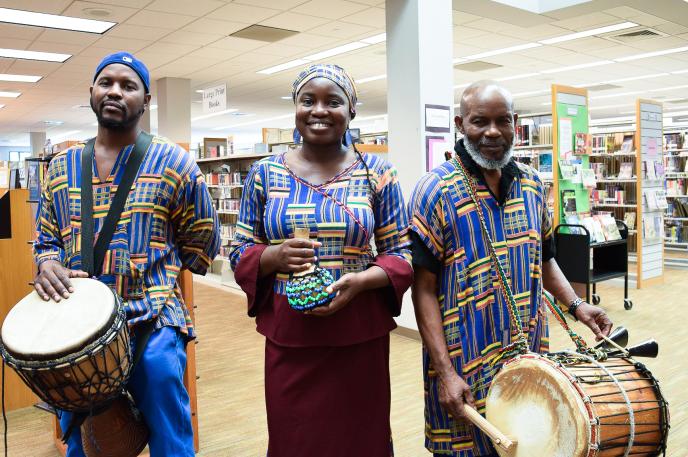
Black History Month at the Library
January 25, 2019
Celebrate Black History Month this February with Charlotte Mecklenburg Library by reading books and attending programs that highlight and celebrate black history and culture. This tradition dates back to 1926 and is celebrated in February because Fredrick Douglass, author and abolitionist, and Abraham Lincoln, the “Great Emancipator” and president, were both born in February. The Library has a wealth of information about Black History Month, but take a look below at some of our top picks.
One great book to share with children is the multi-award-winning The Patchwork Path: A Quilt Map to Freedom by Bettye Stroud. In this story, a young girl named Hannah and her father use a coded quilt from her mother to find their way to freedom from slavery. One fun activity for families to do while reading this book is to encourage children to design quilt squares and attach them to a poster board to replicate a freedom quilt.
Roll of Thunder Hear My Cry by Mildred D. Taylor is the perfect book to share with second-graders and older children; this book also won the 1977 Newbery Medal. Set in the Great Depression, this book follows Cassie as she confronts racism. If you’re looking for more, this title is the sequel to Song of the Trees and is followed by two other books and a prequel.
Dear Martin by Nic Stone stars Justyce in this young adult fiction book. Justyce is a great student, on his way to an Ivy League college. After an incident involving the police, Justyce turns to the teachings of Dr. Martin Luther King Jr. However, after another incident with an off-duty officer, Justyce battles with himself and asks, “What would Martin do?” This is a powerful story and is a good way to start conversations with teens about race and violence.
Octavia E. Butler’s novel Kindred is the first science fiction novel written by an African-American woman. Dana is celebrating her birthday in California when she’s whisked away through time to antebellum Maryland. Through multiple time traveling trips, Dana soon learns she‘s meant to protect a young slaveholder because he’s the father of Dana’s great grandmother. This book gives the modern woman a glimpse into the horrors of the antebellum South and slavery. Kindred is great for both young adults and adults.
Along with vast amounts of fiction available to start conversations during Black History Month, the Library has numerous biographies to help readers learn more about African-American culture and history. Just search the catalog on our website. Be sure to check out our young adult and children’s booklist as well as a booklist that can inspire people of all ages.
For other options, visit Beatties Ford Road Regional Library and the LATIBAH Museum's exhibit of Door of No Return: Story of the Middle Passage. This event is free for families, but you must register online. Additionally, ImaginOn:The Joe and Joan Martin Center and West Boulevard will also offer programs for children to celebrate Black History Month.
